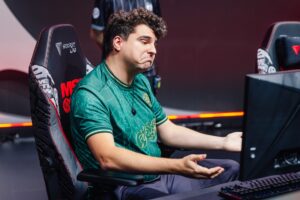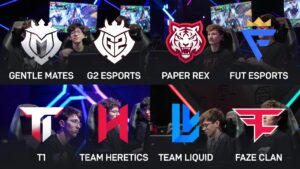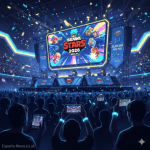Look Sports Media – FlyQuest’s top laner, Gabriel "Bwipo" Rau, recently ignited a firestorm of controversy within the League of Legends community and the broader esports world with comments dismissing women’s ability to compete during menstruation. His statements, made during a livestream to over 32,000 viewers, sparked immediate backlash and a crucial conversation about sexism and misogyny in esports.
Bwipo’s initial claim, that women shouldn’t play competitive League of Legends while menstruating, was met with swift and widespread condemnation. The irony wasn’t lost on many; his stream’s title, "Strength does not come from physical capacity. It comes from an indomitable will," directly contradicted his dismissive remarks about women’s capabilities during their menstrual cycle. This hypocrisy fueled the outrage, highlighting the deeply ingrained biases that still plague the esports industry.

Prominent figures like Eefje "Sjokz" Depoortere challenged Bwipo’s assertions, pointing out the absurdity of his claims in the face of countless examples of women excelling in various demanding fields, including healthcare and other high-pressure professions, while menstruating. The sheer volume of women working in the NHS, for example, overwhelmingly refutes the notion that menstruation inherently impacts professional competence.

Related Post
Bwipo’s second, equally problematic, assertion implied that his experience living with a single woman provided him with sufficient insight into the universal female experience during menstruation. This further fueled criticism, highlighting the arrogance of assuming a single anecdote represents the diverse realities of millions of women.
The ensuing outcry forced both Bwipo and FlyQuest to issue apologies. FlyQuest acknowledged the sexist nature of Bwipo’s comments and announced a suspension from his next game, with his prize money being donated to women’s gaming initiatives. While Bwipo’s apology expressed regret, the relatively light consequences—a single game suspension and a donation—left many feeling his accountability was insufficient.
The incident underscores the ongoing struggle for gender equality in esports. The casual dismissal of women’s experiences and capabilities, even from prominent figures like Bwipo, perpetuates harmful stereotypes and reinforces the need for continuous education and advocacy. While Bwipo’s comments were undeniably offensive, the broader conversation they ignited is vital for fostering a more inclusive and equitable environment within the esports community. The incident serves as a stark reminder that progress towards gender equality requires not only apologies but also meaningful systemic change. The future of esports depends on it.
By Hannah Marie ZT, Senior Editor. Hannah is a journalist specializing in the esports, gaming, and technology sectors. Working for outlets such as Dot Esports, Esports Insider, and looksports.media, she has developed a love for wider esports, Apex Legends, and advocating for women’s esports initiatives. You may have seen her at various esports and gaming events, including ALGS LANs, ESI London, EGX, and watch parties.










Leave a Comment